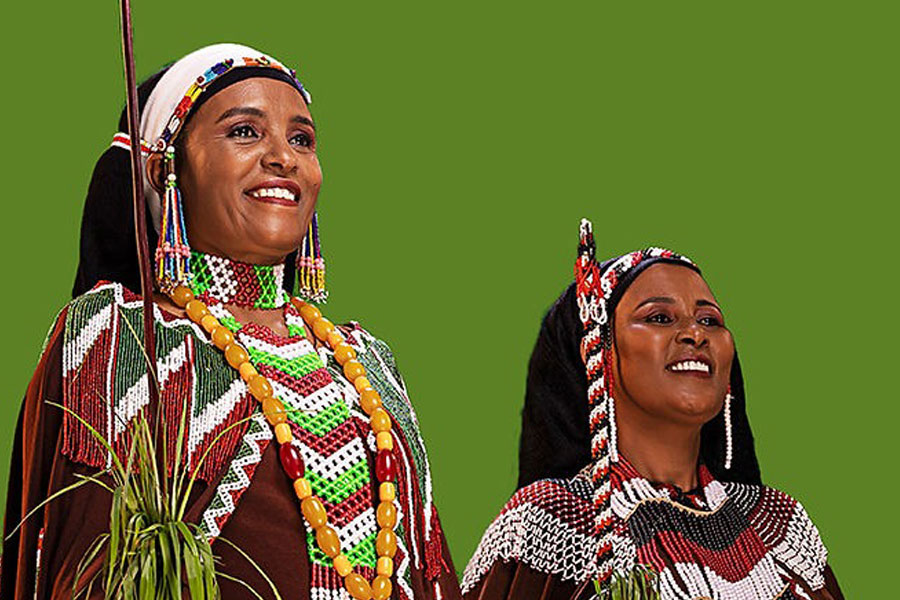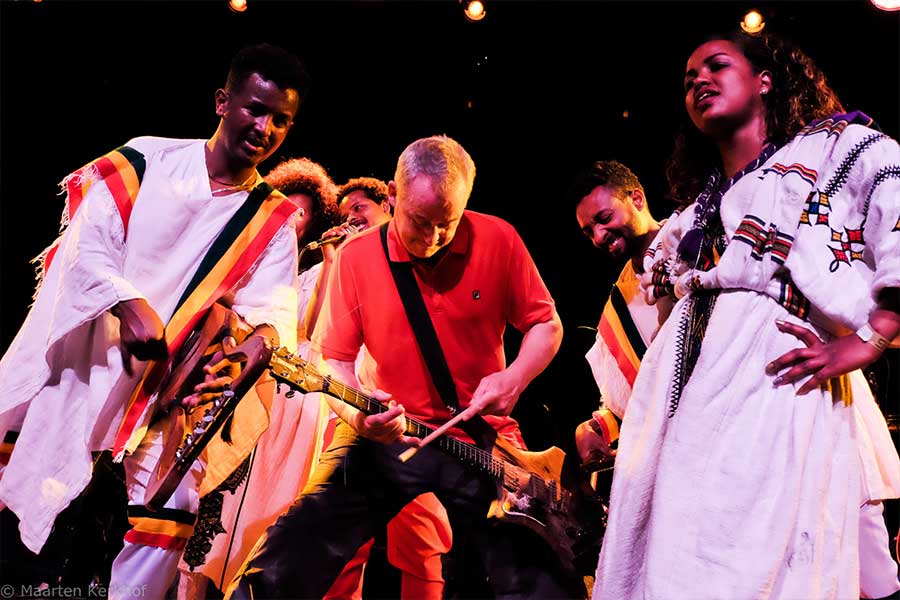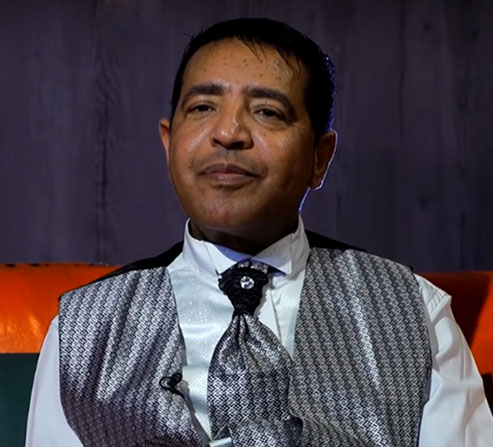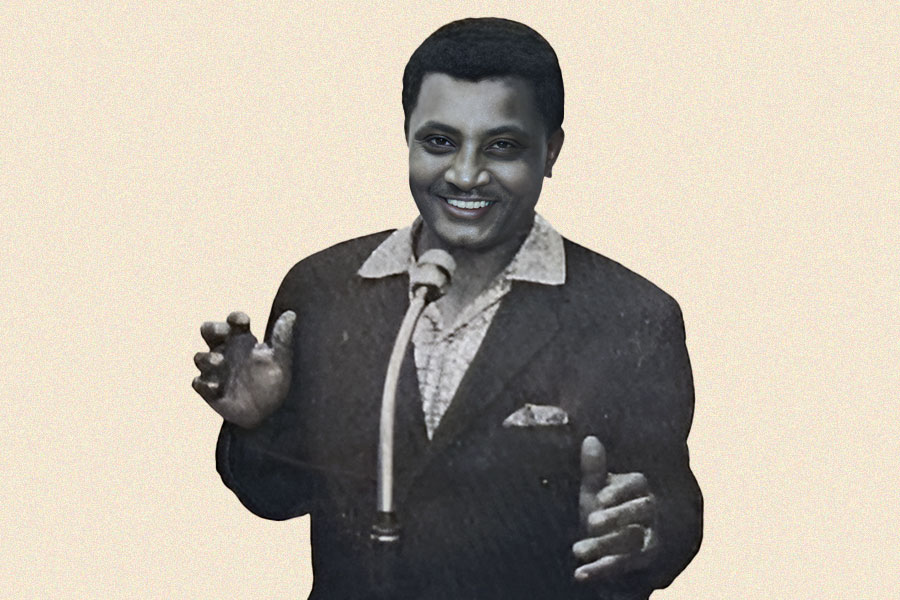
Featured | May 04,2025
Seven years in the making, Kuku Sebsibie’s unmistakably husky alto, “Dejazmach” (love wears a general’s crown) is to hit the airwaves. Cueing up as a cavernous Chik Chika beat, the record will arrive not on brittle plastic but on her YouTube channel, a farewell gesture to album-length projects from a singer who once had her albums sold on cassettes from the boot of a blue-and-white taxi.
“Albums are exhausting now,” she said. “Everyone streams. So, I’ll premiere it online and move on to singles, maybe a talk show.”
Kuku is hardly alone. Over the next six months, at least a dozen Ethiopian heavyweights, some returning after a decade-long silence, will unveil new work directly to phones, tablets, and laptops. Their migration marks a tipping point for a business that, until recently, relied on boot sale discs and the hope that royalty cheques might one day materialise.
The numbers are still dwarfed by Afrobeats powerhouses such as Nigeria. But, momentum is unmistakable. According to Statista, Ethiopia’s streaming market generated an estimated 4.61 million dollars in 2023 and is on course to hit 7.1 million dollars by 2027, with 1.7 million users hooked to earbuds and data bundles.
A homegrown platform, “Sewasew”, launched two years ago with a promise of DRM-locked downloads, logged 60,000 app downloads in its first 45 days. Spotify finally flicked the switch for Ethiopian listeners in December 2022 after years of lobbying.
However, the rewards remain uneven.
Teddy Afro’s official YouTube channel clocks more than 1.06 million subscribers and 288 million cumulative views, enough to earn around 3,000 and 5,000 dollars a month in AdSense revenue.
For midtier singers, the digital dividend is slimmer. Streams pay in cents, but every click counts when physical sales are practically dead. Physical sales died because pirates killed them.
A 2019 industry survey found that four out of every five discs on Addis Abeba streets were illegal copies. Last month, the Ministry of Culture & Sport signed a five-year pact with MultiChoice Africa and the Intellectual Property Authority to shore up enforcement and educate consumers.
Against that backdrop, Kuku’s “Dejazmach” feels almost defiant. The 63-year-old recorded eight tracks gifted by reggaesoul superstar Teddy Afro over the past seven years. One cut, initially released two decades ago, has been rebuilt by arranger Tewodros Mekonnen.
“It’s my last long player,” she insisted, “but not my last song.”
Her next project is “Kuku’s Journey,” a conversational web series that will stream weekly.
In her slipstream comes Haymanot Girma, back after a 15-year hiatus with “Jenenu,” a 12-track set bristling with “Chikchaka Wende” and “Zuka”, subgenres she coined while school runs replaced stagecraft.
Recording took barely two months, but the thinking, she says, took three years.
“I studied moods, TikTok rhythms and what Gen Z expects of love songs” she said.
She has already sold distribution rights to Nahom Records, secured four video budgets and pencilled in club dates for early June.
For 26yearold Kaleab Kinfe (aka Kalkin) the digital highway is native territory. His debut, “Yale Fikir,” drops on April 25, with automatic placement on Spotify, Boomplay, and Apple Music.
“We finished in 27 months,” he told Fortune. “A producer watched every take. Fresh ears, fresh energy.”
One track, “Muziqa,” riffs on Dancehall drums; another flirts with blues guitar. The album art, a void shaped like a heart, nods to the title’s literal meaning: “Where love is absent.”
If the new crop moves at startup speed, veterans wrestle with slower logistics, and spiralling studio prices.
Ahmed Teshome, nicknamed “Dinbi” after his 2002 breakout hit, has spent 13 years whittling 35 rough demos to 13.
“We waited three months for a single saxophonist,” he said. “Then the mixing fee doubled from 30,000 Br to 70,000 Br a track.”
Will he recoup?
“Promotion first,” he shrugged. “Money follows art.”
Matias Teffera, too, who left music in 2004 to run a family logistics firm and support dialysis for kidney patients, is also set for a comeback soon. Two bereavements delayed his comeback EP twice. Now back in the booth, he is blending Amapiano kicks with classic Zouk and lyrics composed by the late Tamirat Desta and Surafel Teka.
“I’m not counting streams,” he says. “I’m counting conversations.”
One red thread through every interview is ownership. In the 1990s, producers bankrolled sessions, pressed cassettes, and pocketed royalties. Artists were paid once, seldom handsomely.
Today, they fund everything, and keep the master files.
Bisrat Surafel, son of the revered lyricist Surafel Teka, is so committed to creative control that he crowdsourced the cover design for his forthcoming EP, “Yeferenj Tseyem,” offering a cash prize to emerging graphic artists.
“My father’s peers lost their rights,” he told Fortune. “I’m not repeating that history.”
He hopes concert sponsorships and YouTube CPM will underwrite the gamble.
Ethiopians aged under 25 now make up nearly 60pc of the population; most were toddlers when Kuku last topped the charts. Mobile data prices have fallen 40pc in five years, while handset imports, even amid foreign currency shortages, topped 2.1 million units last year, according to customs data.
That youth bulge is flooding TikTok with homemade “Eskista” routines and pushing streaming firms to programme fresh Amharic playlists every Friday.
Haymanot’s Instagram live session, filmed in her kitchen with an out-of-tune piano, drew emoji hearts from Dubai to Denver. The diaspora remains a vital pay-per-stream constituency, not least because the average Ethiopian household income is less than 1,000 dollars a year.
Despite momentum, Ethiopia’s streaming revenue represents barely 0.02pc of global takings. International catalogues dominate playlists. Universal Music licensed its entire African roster to Sewasew in late 2023, in a deal insiders say was front-loaded with advances to lure users with “free period” campaigns.
Government officials hope that partnering with MultiChoice’s “Partners Against Piracy” campaign will plug revenue leaks. The initiative trains customs officers to spot dodgy SD cards at Bole airport and sponsors radio jingles urging fans to “Buy, don’t bite.”
Whether that curbs Telegram channel bootlegs remains to be seen.
What seems inevitable is that Ethiopia’s era of 20-track CDs is over. Kuku will drip-feed singles between episodes of her talk show. Haymanot plans concerts; Kaleab is mapping a tour, while Bisrat reads a drop from his late father’s lyric notebooks.
For Kuku, the digital shift is both liberation and last stand. She cues a rough mix of “Balageru,” a lullaby stitched with cowhorns, Teddy Afro’s choir, and a loping bass line.
“I titled it after my father, a ‘Dejazmach’ who taught me that titles mean nothing without service,” she told Fortune. “If a million young Ethiopians can hear that message on their phones at midnight, then seven years wasn’t too long.”
But, she strongly feels that she was never out of sight, as she has always played music in clubs.
“I’m always available for the young ones so that made me lovable with the new generation,” she told Fortune.
Outside, dusk slides over Addis Abeba, a city still jammed with cassette kiosks, yet now humming to the glow of tiny screens and brand-new sounds.
PUBLISHED ON
Apr 19,2025 [ VOL
26 , NO
1303]

Featured | May 04,2025

Featured |

Verbatim | Mar 14,2020

View From Arada | Apr 20,2025

Featured | Jan 07,2024

View From Arada | Apr 10,2021

Fortune News | Sep 10,2021

View From Arada | May 23,2020

View From Arada | Apr 03,2021

View From Arada | Jun 03,2023

Dec 22 , 2024 . By TIZITA SHEWAFERAW
Charged with transforming colossal state-owned enterprises into modern and competitiv...

Aug 18 , 2024 . By AKSAH ITALO
Although predictable Yonas Zerihun's job in the ride-hailing service is not immune to...

Jul 28 , 2024 . By TIZITA SHEWAFERAW
Unhabitual, perhaps too many, Samuel Gebreyohannes, 38, used to occasionally enjoy a couple of beers at breakfast. However, he recently swit...

Jul 13 , 2024 . By AKSAH ITALO
Investors who rely on tractors, trucks, and field vehicles for commuting, transporting commodities, and f...

Oct 25 , 2025
The regulatory machinery is on overdrive. In only two years, no fewer than 35 new pro...

Oct 18 , 2025
The political establishment, notably the ruling party and its top brass, has become p...

Oct 11 , 2025
Ladislas Farago, a roving Associated Press (AP) correspondent, arrived in Ethiopia in...

Oct 4 , 2025
Eyob Tekalegn (PhD) had been in the Governor's chair for only weeks when, on Septembe...